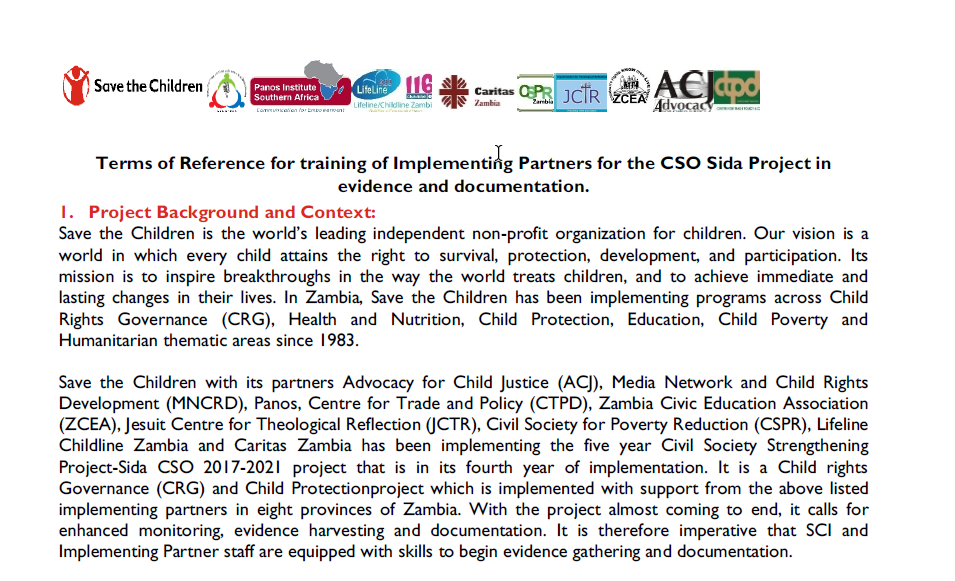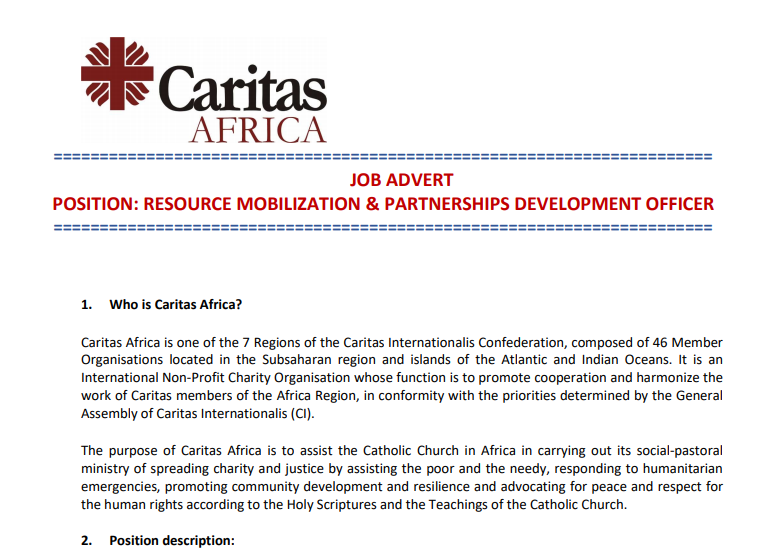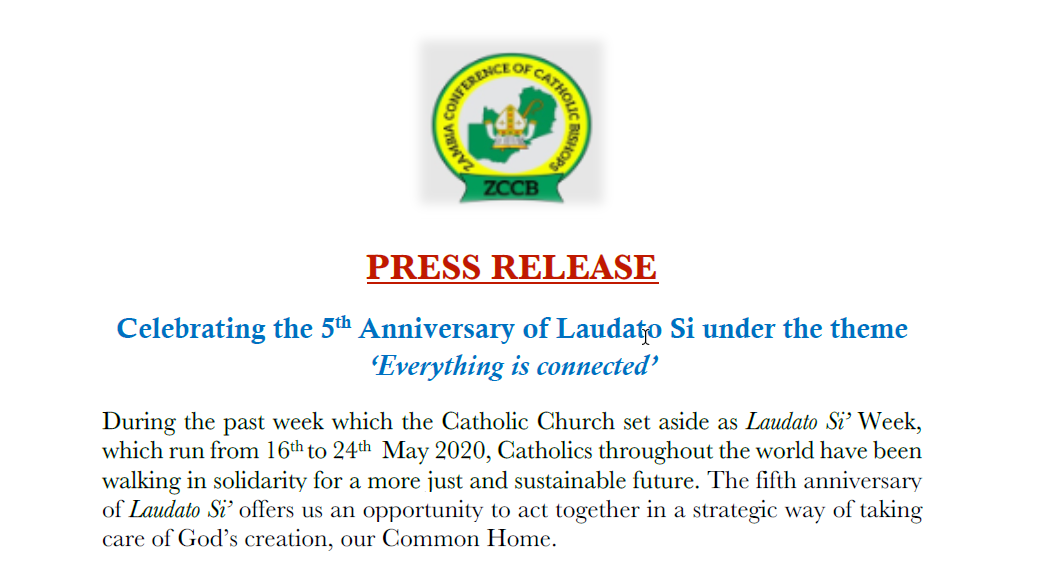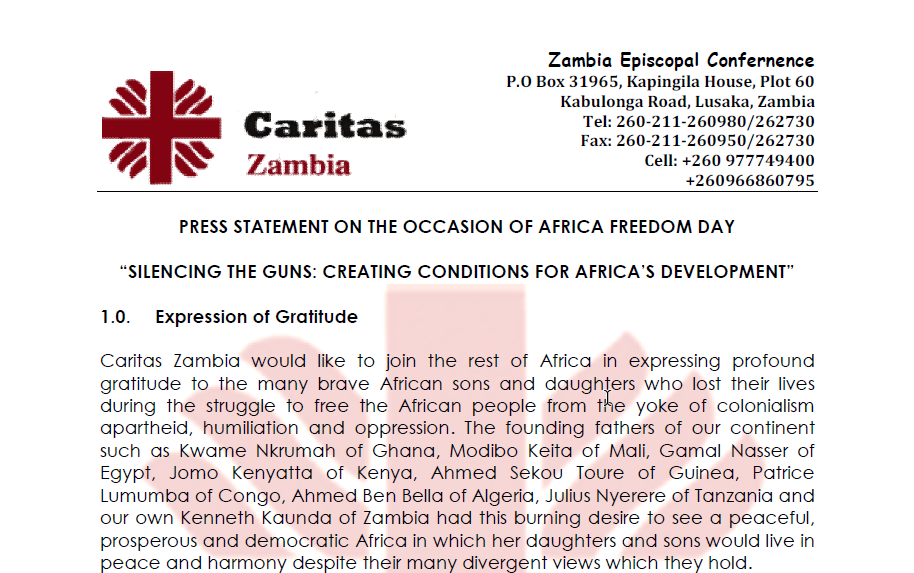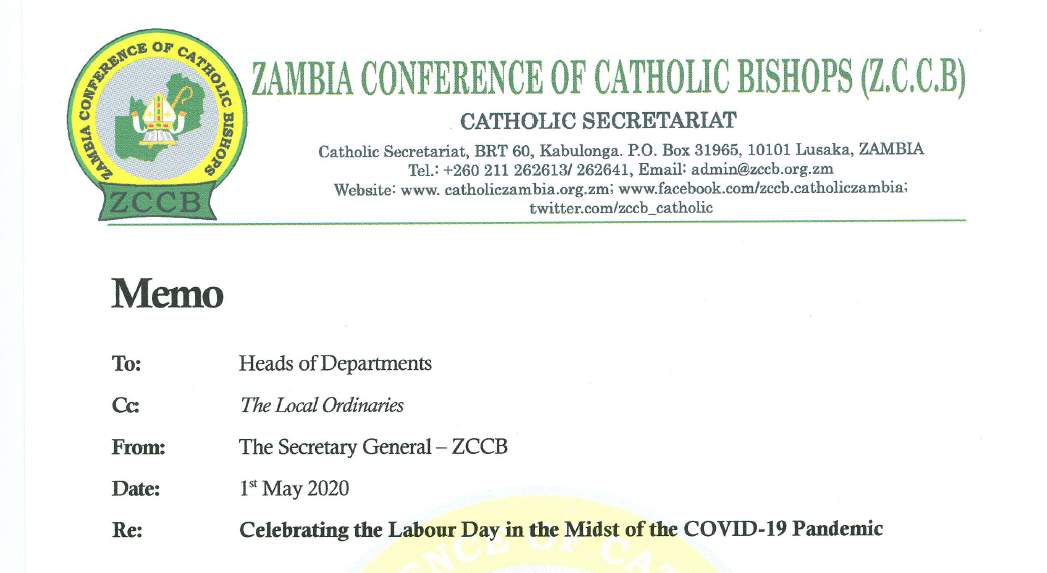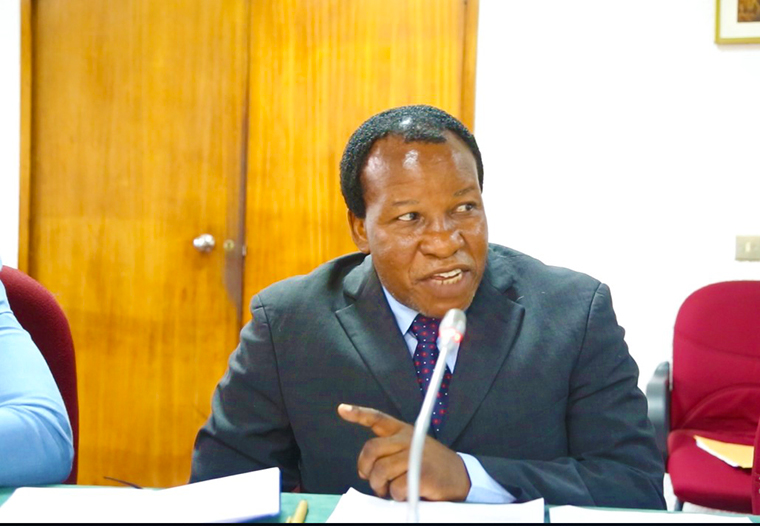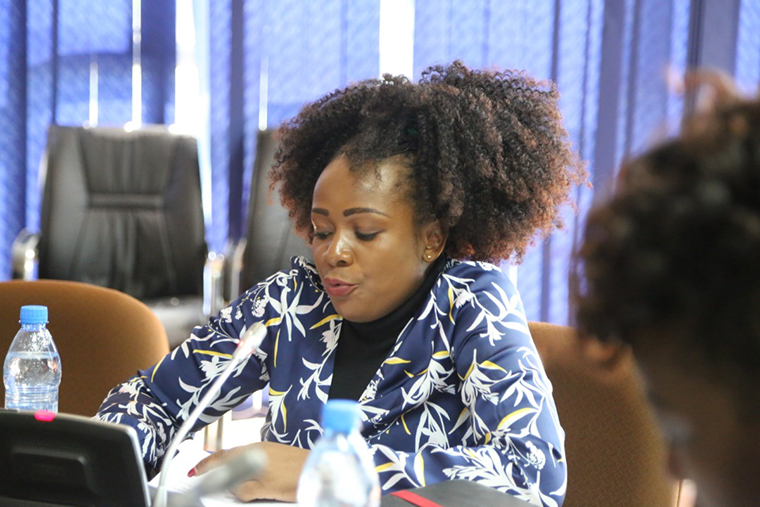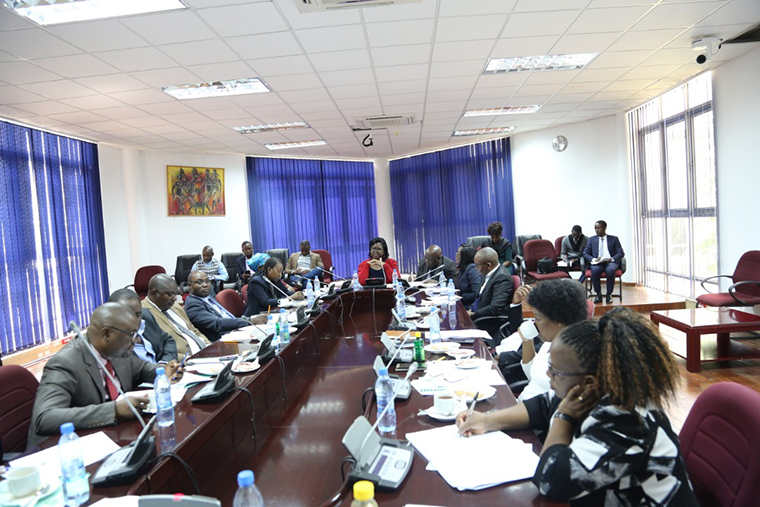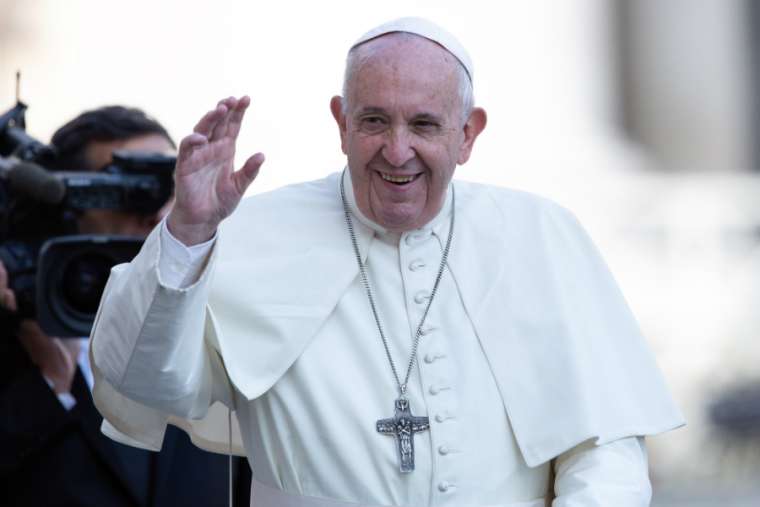1. Project Background and Context:
Save the Children is the world’s leading independent non-profit organization for children. Our vision is a world in which every child attains the right to survival, protection, development, and participation. Its mission is to inspire breakthroughs in the way the world treats children, and to achieve immediate and lasting changes in their lives. In Zambia, Save the Children has been implementing programs across Child Rights Governance (CRG), Health and Nutrition, Child Protection, Education, Child Poverty and Humanitarian thematic areas since 1983.
Save the Children with its partners Advocacy for Child Justice (ACJ), Media Network and Child Rights Development (MNCRD), Panos, Centre for Trade and Policy (CTPD), Zambia Civic Education Association (ZCEA), Jesuit Centre for Theological Reflection (JCTR), Civil Society for Poverty Reduction (CSPR), Lifeline Childline Zambia and Caritas Zambia has been implementing the five year Civil Society Strengthening Project-Sida CSO 2017-2021 project that is in its fourth year of implementation. It is a Child rights Governance (CRG) and Child Protection project which is implemented with support from the above listed implementing partners in eight provinces of Zambia. With the project almost coming to end, it calls for enhanced monitoring, evidence harvesting and documentation. It is therefore imperative that SCI and Implementing Partner staff are equipped with skills to begin evidence gathering and documentation.
2. Objective
Build capacity of SCI and Implementing Partner staff in report writing, evidence gathering and documentation.
3. Methodology
In order to achieve the objective of this assignment, the successful consultant is expected to: • Prepare an inception report (narrative and financial proposal). • Design training content in evidence gathering and documentation. • Conduct virtual/Physical training to 25 SCI and Implementing partner staff.
4. Deliverables
• Training report (15-20 pages) [electronic and hard copy].
• Project evidence harvesting and documentation plan
5. Target groups for the training
SCI and Implementing Partner staff.
6. Proposed time-frame
The proposed time frame for completing this assignment is 10 working days from 22nd June to 2nd July 2020.
7. Required profile of the Consultant/team
The consultant/team must demonstrate the following qualifications in order to be eligible for this assignment:
- • The Team Lead must hold a Master’s degree in a relevant field: Communication and Development Studies.
- • Other team members should also hold a minimum of a first degree in Communication and Development Studies.
- • A minimum of 3 years of proven experience in capacity building in evidence gathering and documentation.
8. Application Process
Interested and qualified consultants/firms are required to submit a proposal interpreting this Terms of Reference elaborating the proposed methodology, a detailed work plan and budget indicating both the professional rates and costs for logistics/operations in Zambian Kwacha. The same should be accompanied with detailed CV for the lead Consultant including summarized CVs of other team members if any proposed for this assignment or comparable consultancies or engagements recently completed and at least 3 work references or links of sample works successfully produced in the last 2-3 years.
The quotations should be submitted electronically to Save the Children Zambia through the procurement unit.
The deadline for submission of application is 15th June 2020 at 12.00 noon Central African Time. Only successful applicants will be contacted for interviews.
9. Budget
As part of the expression of interest, interested consultants should submit their competitive bid budget and work-plan to undertake this study of work in line with these terms of reference.
10. Schedule of payment
The following payments will be made to the selected consultant/team using an agreed mode of payment:
- • On contract signing: 50%
- • After acceptance and approval of final documents: 50%
Proposal assessment and award of consultancy
Save the Children and the Sida CSO Partners will evaluate the proposals and award the assignment based on technical and financial feasibility. Save the Children and its partners reserves the right to accept or reject any proposal received without giving reasons and is not bound to accept the lowest, the highest or any bidder. Only the successful applicant will be contacted.
Interested applicants are invited to submit EOI and a budget, proposed work plan and CVs of relevant documentary team members with references of previous work done not later than 15th June 2020 to the email addresses below. Only shortlisted candidates will be contacted.
Send to;
- 1. Centre for Trade policy and Development (CTPD): This email address is being protected from spambots. You need JavaScript enabled to view it.
- 2. Panos Institute Southern Africa (PSAf): This email address is being protected from spambots. You need JavaScript enabled to view it.
- 3. Life Line ChildLine Zambia: This email address is being protected from spambots. You need JavaScript enabled to view it.
Copy to;
- 4. Save the Children International: This email address is being protected from spambots. You need JavaScript enabled to view it.
Download the entire Expression of Interest to Supply here: https://caritaszambia.org/phocadownload/general/Resource-Mobilisation-Officer.pdf
Caritas Africa is one of the 7 Regions of the Caritas Internationalis Confederation, composed of 46 Member Organisations located in the Subsaharan region and islands of the Atlantic and Indian Oceans. It is an International Non-Profit Charity Organisation whose function is to promote cooperation and harmonize the work of Caritas members of the Africa Region, in conformity with the priorities determined by the General Assembly of Caritas Internationalis (CI).
The purpose of Caritas Africa is to assist the Catholic Church in Africa in carrying out its social-pastoral ministry of spreading charity and justice by assisting the poor and the needy, responding to humanitarian emergencies, promoting community development and resilience and advocating for peace and respect for the human rights according to the Holy Scriptures and the Teachings of the Catholic Church.
Download the entire Job offer here: https://caritaszambia.org/phocadownload/general/Resource-Mobilisation-Officer.pdf
During the past week which the Catholic Church set aside as Laudato Si’ Week, which ran from 16th to 24th May 2020, Catholics throughout the world have been walking in solidarity for a more just and sustainable future. The fifth anniversary of Laudato Si’ offers us an opportunity to act together in a strategic way of taking care of God’s creation, our Common Home.
Today marks exactly 5 years since the release of this popular Encyclical and as we end the cerebrations today, we are delighted to note that Laudato Si is not only a well-written letter by Pope Francis to the people of the world, but has over the years become a point of reference for the Christian Denominations, other religions, government policymakers, including the United Nations, as well as environmental groups and movements worldwide. It is a letter that touches on all sectors of life, reminding us that our socio-economic, political and environmental organisation and practices, must not lead to increasing the crisis that mother earth is currently going through.
Download the entire Press statement here: https://caritaszambia.org/phocadownload/general/Speech-by-ZCCB-SG-at-Closing-Mass-of-Laudato-si-Week.pdf
Caritas Zambia would like to join the rest of Africa in expressing profound gratitude to the many brave African sons and daughters who lost their lives during the struggle to free the African people from the yoke of colonialism apartheid, humiliation and oppression. The founding fathers of our continent such as Kwame Nkrumah of Ghana, Modibo Keita of Mali, Gamal Nasser of Egypt, Jomo Kenyatta of Kenya, Ahmed Sekou Toure of Guinea, Patrice Lumumba of Congo, Ahmed Ben Bella of Algeria, Julius Nyerere of Tanzania and our own Kenneth Kaunda of Zambia had this burning desire to see a peaceful, prosperous and democratic Africa in which her daughters and sons would live in peace and harmony despite their many divergent views which they hold.
Download the entire Press statement here: https://caritaszambia.org/phocadownload/general/Press-Statement-on-Occassion-of-African-Freedom-Day.pdf
“Work for the Lord with untiring effort and with great earnestness of spirit...Do not give up if trials come; and keep on praying” (Romans 12: 11-12)
The Management and esteemed members of staff at the Catholic Secretariat.
On behalf of the Zambia Conference of Catholic Bishops (ZCCB), I wish to convey to you my fellow ecclesiastical civil servants, our best wishes on this year’s Labour Day. At the same times, I wish to acknowledge and applaud your continued spirit of hard work and teamwork, coupled with a lot of personal sacrifices. Be rest assured that the Bishops, not only know but also greatly appreciate your valuable contribution to the work of the church in Zambia
Download the entire message here: https://caritaszambia.org/phocadownload/general/Celebrating-Labour-Day-in-midst-of-COVID-19.pdf
• Emergency finance must not add to debt burdens
• Process to reduce debt to a sustainable level in future is needed
On this World Health day when the world is supposed to celebrate the work of nurses and midwives and remind the world leaders of the critical role they play in keeping the world healthy amid an unprecedented global crisis, more than 100 organisations are calling for developing countries’ debt to be cancelled to fight the Covid-19 health and economic crisis.
Cancelling all debt payments owed by low-income countries to other governments, multilateral institutions and private lenders would free up to US$ 25.5 billion to fight coronavirus in 2020 alone. Extending the cancellation to apply to payments due in 2021 would make another US$ 24.9 billion available to help save lives now and in the future.
The IMF and the World Bank have called for debt payments by the poorest countries to other governments to be suspended, but with the effects of the pandemic likely to last for years, delaying rather than cancelling payments won’t solve the problem.
Cancellation also needs to apply to all creditors, including bilateral, multilateral and private lenders, to ensure freed-up money goes to support the pandemic response, and not to pay off other debts.
Mr. Eugene Kabilika, the Executive Director for Caritas Zambia, joining the world call to cancel debt said: “Thousands, if not millions of Zambians are already facing devastating health, social and economic challenges and the onset of the Covid-19 pandemic, will only make the situation worse. Permanently cancelling upcoming debt payments owed by Zambia would be the fastest way to free up existing public resources to tackle this unprecedented crisis and save lives”.
External debt repayments in Zambia has been diminishing resources meant for poverty reduction, which has exerted a significant crowding-out effect on social expenditures more especially in the health sector which is very critical in this Covid-19 pandemic period. External debt overhang in Zambia, just like in many other African countries continues to constitute a serious obstacle to fight Covid-19 pandemic which has both developmental and economic growth effects.
“The suspension on debt payments called for by the IMF and World Bank will fall short of this goal if it doesn’t apply to all lenders, and only postpones payments. Full cancellation of all external debt payments is critical, along with emergency finance that doesn’t add to debt burdens. This must be followed up with a more comprehensive and long-term approach to debt crisis resolution.”In addition, “it is important to do everything possible to help low-income countries avoid a build-up of unsustainable debt, and that the IMF and Bank should be a leading force toward achieving this objective. This will help Zambianot to fall off track significantly towards attaining the Sustainable Development Goals (SDGs). It will require Full cancellation and greater use of grant financing rather than availing more money for borrowing, especially for poorest and debt vulnerable countries. Availing grants is an important first step in this direction of fighting and stopping the Covid-19 pandemic”
Cancellation of debt service, up to an additional US$ 73.1 billion of emergency finance will be needed to help low-income economies as they respond to the crisis in 2020. This must be provided through grants, rather than loans, to stop recipient countries getting even deeper into debt. Addressing the long-term debt pressures on developing countries also requires decision-makers finally agreeing reforms to the international system for dealing with sovereign debt restructuring, once the acute Covid-19 crisis has passed.
A joint letter also signed by Caritas Zambia - will be sent to governments and their representatives at the IMF and World Bank in due course, it calls for:
• The permanent cancellation of all external debt payments due in 2020 by developing countries, with no accrual of interest and charges and no penalties.
• The provision of additional, fresh emergency finance that does not create more debt.
• Debt cancellation and new financing to be provided free of demands for market-friendly and austerity-focused policy reforms in developing countries.
• Measures to be put in place to protect developing countries from lawsuits when ceasing 2020 debt payments.
• A process under UN auspices to be agreed in the longer term, to support systematic, timely, and fair restructuring of sovereign debt.
END
Download a signed copy here https://caritaszambia.org/index.php/publications/general/file/150-developing-countries-debt-must-be-cancelled-to-tackle-coronavirus-crisis
Caritas Zambia
Catholic Secretariat
Box 31965
Plot BRT 6, Kabulonga Road
Lusaka
Signed
7th April, 2010
NOTE TO EDITORS:
• Signatories of the statement include the African Forum and Network on Debt and Development (Afrodad), Asian Peoples’ Movement on Debt and Development (APMDD), Latin American Network on Debt, Development and Rights (Latindadd) and European Network on Debt and Development (Eurodad). Other signatories include Jubilee Debt Campaign UK, USA and Germany, Oxfam, ActionAid, International, The ONE Campaign, Cafod, Save the Children and Global Justice Now, as well as the Mozambique Budget Monitoring Forum, Budget Advocacy Network in Sierra Leone and CUTS International, Zambia.
• African finance ministers have called for a suspension of all interest payments in 2020, and all principal and interest payments by fragile states.
• Urgent calls for debt relief have also been made by the United Nations Secretary-General, the United Nations Conference for Trade and Development, the Prime Ministers of both Pakistan and Ethiopia, the Ecuadorian Congress and Vatican Cardinal Luis Antonio Tagle.
This statement calls for:
• Multilateral institutions, including the IMF and World Bank, should offer an immediate cancellation of all principal, interest and charges for the remainder of 2020 for all countries in need, and most urgently for all PRGT and IDA countries.
• The IMF and World Bank should urge any country ceasing multilateral and/or bilateral debt payments to also cancel payments to private external lenders. Any new IMF and World Bank finance should be in the form of grants not loans, and require other lenders to reprofile the debt where sustainability is uncertain or restructure their debt where it is unsustainable, to help ensure money is used to support public policy priorities in response to the COVID-19 crisis, rather than to repay other lenders.
• Lender governments, both Paris Club members and others such as China, Saudi Arabia and Kuwait, should cancel all principal, interest and charges for the remainder of 2020 for all countries in need, and most urgently for all PRGT and IDA countries. Ideally, a debt cancellation should be coordinated between lenders but should not wait for them all to agree.
• The G20 should support moves by any country to stop making payments on debt to private external lenders.
• Key jurisdictions, especially the UK and New York, should pass legislation to prevent any lender suing a government for stopping debt payments in 2020.
• Debt payment cancellations and additional finance should be free of economic policy conditionality promoting privatisation, deregulation and trade liberalisation. The crisis has been caused by exogenous shocks: developments over which countries in the global south had no control.
• Debt payment cancellation and additional finance should be designed specifically to bolster public expenditure targeted at protecting the rights and needs of populations, especially to maintain and increase social protection and health spending in response to COVID-19 and
The statement also calls for longer-term measures:
• The creation through the United Nations of a systematic, comprehensive and enforceable process for sovereign debt restructurings.
• The IMF to introduce clear guidelines on when a debt is unsustainable, and follow its policy only to lend to countries with unsustainable debts if there is a default or debt restructuring.
INTRODUCTION
The Zambia government created the Youth Development Fund (YDF) in 2000 in order to address the issue of youth unemployment by encouraging young people who could not find formal employment to pursue entrepreneurship and self-employment. Zambia has high rates of youth unemployment. In 2014 approximately 10.5% of young people aged 18-35 were unemployed compared to 7.4% of general unemployment rate (Central Statistical Office, 2015). The challenge of high youth unemployment remain of great concern, especially that Zambia is a youthful country whereby 80% of the population falls below the age of 35 (Central Statistical Office, 2012). The problem of youth unemployment has been aggravated by the fact that economic growth in the past 14 years has not been very inclusive. Therefore, the introduction of the YDF is a good action by Zambia in addressing the unemployment challenges. This introduction of this empowerment program is in line with the National Youth Policy objectives of 2015, which are aimed to;
SUBMISSION TO THE COMMITTEE ON AGRICULTURE, LANDS AND NATURAL RESOURCES OF THE NATIONAL ASSEMBLY ON ZAMBIA’S RESPONSE TO THE IMPACT OF CLIMATE CHANGE ON THE AGRICULTURE SECTOR FROM THE ZAMBIA CLIMATE CHANGE NETWORK
DATE: 21st NOVEMBER 2019
BACKGROUND
Globally, climate change has become a challenge affecting many developing nations including Zambia. The impacts of Climate Change are usually adverse for developing nations due to the high levels of vulnerability coupled with low adaptive capacity. Climate change threatens the ability of countries to meet their developmental goals. Effects of climate change include drought, flooding, extreme temperatures affecting key sectors of national development such as energy sector, food security, health, water sources, industrial processing among many others. The agriculture sector is the most vulnerable sector to climate change effects. The Zambian government has made an effort to address these effects by coming up with mitigation and adaptation strategies.
The effect of Climate Change is already affecting temperatures and precipitation in Zambia. Warming has been especially noticeable during the winter months. According to Zambia's Meteorological Department, the 2016 high temperatures ranging from 30°C to 38°C across the country attest to the fact that was established in 2006 of increasing temperatures. Furthermore, Zambia's average annual rainfall decreased by an average rate of 2.8 mm per month per decade since 1960, primarily due to decreases in rainfall from December to February and this has greatly affected crop production and household food security. Some communities in rural areas are in chronic food deficit and always face moderate food insecurity due to low production and high levels of poverty. According to the Disaster Management and Mitigation Unit’s (DMMU) Vulnerability Assessment Committee’s 2019 report (ZVAC), about 2.3 million people in Zambia are likely to face acute food insecurity in the projected period of October 2019 to March 2020.
Crop production is threatened by Climate Change due to changes in rainfall patterns and temperatures. Apart from affecting crops, the rising temperatures and associated decreases in rainfall have also reduced foliage for cattle and other animals that depend on grass for their survival. Households that depend on cattle for their livelihoods face difficulties in sustaining their livelihoods when their livestock die. They become vulnerable to Climate Change impacts as a result of reduced livestock that normally is an alternative to crop production and income.
Other adverse effects of Climate Change include loss of natural environment, damage to infrastructure and disruption of biodiversity. According to the 2011 study on the economic impacts of Climate Change, a GDP loss of USD 5 billion is estimated over a 10 – 20 year period. An assessment of potential climate impacts shows that they will seriously undermine the efforts to improve the livelihoods of Zambians if left unaddressed.
The entire submission to the Committee on Agriculture, Lands and Natural Resources of the National Assembly on Zambia’s response to the impact of climate change on the agriculture sector by the Zambia Climate Change Network can be found and downloaded at https://caritaszambia.org/index.php/publications/key-papers/file/148-zambia-s-response-to-the-impact-of-climate-change-on-the-agriculture-sector-from-the-zambia-climate-change-network
CARITAS ZAMBIA SUBMISSION TO THE PARLIAMENTARY COMMITTEE ON CABINET AFFAIRS
“THE ROLE OF THE FINANCIAL INTELLIGENCE CENTRE (FIC) IN THE FIGHT AGAINST CORRUPTION AND OTHER FINANCIAL CRIMES”
Zambia Episcopal Conference
P.O. Box 31965,
Kapingila House
Kabulonga Road
Lusaka
Zambia
6th December 2019
“The role of the Financial Intelligence Centre (FIC) in the fight against Corruption and other Financial Crimes”
INTRODUCTION
The Financial Intelligence Centre and its work has become known to many Zambians because of the trends reports it has so far been publishing and disseminating to the members of the public, pointing out the nature of financial crimes and corruption uncovered in the trend reports. According to the 2016 trends report, 4.5 Billion Kwacha was lost through tax evasion, Corruption, Money laundering, and fraud. The 2018 trends report, showed an increase of resources lost through these vices by 1.6 Billion Kwacha. The total amount reported to have been lost was 6.1 Billion kwacha. The FIC reports have generated serious debates on the role of the Centre. Some sections of the Zambian people have been welcoming the revelations and openly supported the Centre and urging them to continue the good work. On the other hand, some people who felt that they were named in the reports condemned the Centre saying that it overstepped their boundary. Apparently, even some sister institutions such as the ACC and the DEC condemned the FIC for the revelation of the information. Why? Caritas Zambia believes that, because senior government officials were somewhat linked to the reports, there seems to have been an attempt to cover up!
This paper is a response to the request by the parliamentary committee on Cabinet Affairs, to submit a memorandum on “the role of the Financial Intelligence Centre (FIC) in the fight against Corruption and other Financial Crimes” focusing on the following areas:
a). The sufficiency of the legal and policy framework within which the financial intelligence Centre operates
b). The role of the FIC in fighting against corruption
c). Collaboration between the FIC and other investigative and law enforcement agencies in the fight against financial crimes
d). Strategies put in place to the fight against corruption and financial crimes
e). Challenges if any, being faced regarding the collaborative work
f). Make recommendations on the way- forward
The entire Submission to the Parliamentary Committee on Cabinet Affairs on The role of the Financial Intelligence Centre (FIC) in the fight against corruption and other financial crimes by CARITAS Zambia can be found and downloaded at https://caritaszambia.org/index.php/publications/key-papers/file/147-the-role-of-the-financial-intelligence-centre-fic-in-the-fight-against-corruption-and-other-financial-crimes
War, as we know, often begins with the inability to accept the diversity of others, which then fosters attitudes of aggrandizement and domination born of selfishness and pride, hatred and the desire to caricature, exclude and even destroy the other. War is fueled by a perversion of relationships, by hegemonic ambitions, by abuses of power, by fear of others and by seeing diversity as an obstacle. And these, in turn, are aggravated by the experience of war.
As I observed during my recent Apostolic Journey to Japan, our world is paradoxically marked by“a perverse dichotomy that tries to defend and ensure stability and peace through a false sense of security sustained by a mentality of fear and mistrust, one that ends up poisoning relationships between peoples and obstructing any form of dialogue. Peace and international stability are incompatible with attempts to build upon the fear of mutual destruction or the threat of total annihilation. They can be achieved only on the basis of a global ethic of solidarity and cooperation in the service of a future shaped by interdependence and shared responsibility in the whole human family of today and tomorrow”.[2]
Every threatening situation feeds mistrust and leads people to withdraw into their own safety zone. Mistrust and fear weaken relationships and increase the risk of violence, creating a vicious circle that can never lead to a relationship of peace. Even nuclear deterrence can only produce the illusion of security.
We cannot claim to maintain stability in the world through the fear of annihilation, in a volatile situation, suspended on the brink of a nuclear abyss and enclosed behind walls of indifference. Asa result, social and economic decisions are being made that lead to tragic situations where human beings and creation itself are discarded rather than protected and preserved.[3] How, then, do we undertake a journey of peace and mutual respect? How do we break the unhealthy mentality of threats and fear? How do we break the current dynamic of distrust?
We need to pursue a genuine fraternity based on our common origin from God and exercised in dialogue and mutual trust. The desire for peace lies deep within the human heart, and we should not resign ourselves to seeking anything less than this.
2. Peace, a journey of listening based on memory, solidarity and fraternity
The Hibakusha, the survivors of the atomic bombs dropped on Hiroshima and Nagasaki, are among those who currently keep alive the flame of collective conscience, bearing witness to succeeding generations to the horror of what happened in August 1945 and the unspeakable sufferings that have continued to the present time. Their testimony awakens and preserves the memory of the victims, so that the conscience of humanity may rise up in the face of every desire for dominance and destruction. “We cannot allow present and future generations to lose the memory of what happened here. It is a memory that ensures and encourages the building of a more fair and fraternal future”.[4
Like the Hibakusha, many people in today’s world are working to ensure that future generations will preserve the memory of past events, not only in order to prevent the same errors or illusion from recurring but also to enable memory, as the fruit of experience, to serve as the basis and inspiration for present and future decisions to promote peace.
What is more, memory is the horizon of hope. Many times, in the darkness of wars and conflicts, the remembrance of even a small gesture of solidarity received can lead to courageous and even heroic decisions. It can unleash new energies and kindle new hope in individuals and communities.
Setting out on a journey of peace is a challenge made all the more complex because the interests at stake in relationships between people, communities and nations, are numerous and conflicting. We must first appeal to people’s moral conscience and to personal and political will. Peace emerges from the depths of the human heart and political will must always be renewed, so that new ways can be found to reconcile and unite individuals and communities.
The world does not need empty words but convinced witnesses, peacemakers who are open to a dialogue that rejects exclusion or manipulation. In fact, we cannot truly achieve peace without a convincing dialogue between men and women who seek the truth beyond ideologies and differing opinions. Peace “must be built up continually”;[5] it is a journey made together in constant pursuit of the common good, truthfulness and respect for law. Listening to one another can lead to mutual understanding and esteem, and even to see in an enemy the face of a brother or sister.
The peace process thus requires enduring commitment. It is a patient effort to seek truth and justice, to honour the memory of victims and to open the way, step by step, to a shared hope stronger than the desire for vengeance. In a state based on law, democracy can be an important paradigm of this process, provided it is grounded in justice and a commitment to protect the rights of every person, especially the weak and marginalized, in a constant search for truth.[6] This is asocial undertaking, an ongoing work in which each individual makes his or her contribution responsibly, at every level of the local, national and global community.
As Saint Paul VI pointed out, these “two aspirations, to equality and to participation, seek to promote a democratic society... This calls for an education to social life, involving not only the knowledge of each person’s rights, but also its necessary correlative: the recognition of his or her duties with regard to others. The sense and practice of duty are themselves conditioned by the capacity for self-mastery and by the acceptance of responsibility and of the limits placed upon the freedom of individuals or the groups”.[7]
Divisions within a society, the increase of social inequalities and the refusal to employ the means of ensuring integral human development endanger the pursuit of the common good. Yet patient efforts based on the power of the word and of truth can help foster a greater capacity for compassion and creative solidarity.
In our Christian experience, we constantly remember Christ, who gave his life to reconcile us to one another (cf. Rom 5:6-11). The Church shares fully in the search for a just social order; she continues to serve the common good and to nourish the hope for peace by transmitting Christian values and moral teaching, and by her social and educational works.
3. Peace, a journey of reconciliation in fraternal communion
The Bible, especially in the words of the Prophets, reminds individuals and peoples of God’scovenant with humanity, which entails renouncing our desire to dominate others and learning to see one another as persons, sons and daughters of God, brothers and sisters. We should never encapsulate others in what they may have said or done, but value them for the promise that they embody. Only by choosing the path of respect can we break the spiral of vengeance and set out on the journey of hope.
We are guided by the Gospel passage that tells of the following conversation between Peter and Jesus: “Lord, how often shall my brother sin against me, and I forgive him? As many as seven times?” Jesus said to him, “I do not say to you seven times, but seventy times seven” (Mt 18:21-22). This path of reconciliation is a summons to discover in the depths of our heart the power of forgiveness and the capacity to acknowledge one another as brothers and sisters. When we learn to live in forgiveness, we grow in our capacity to become men and women of peace.
What is true of peace in a social context is also true in the areas of politics and the economy, since peace permeates every dimension of life in common. There can be no true peace unless we show ourselves capable of developing a more just economic system. As Pope Benedict XVI said ten years ago in his Encyclical Letter Caritas in Veritate, “in order to defeat underdevelopment, action is required not only on improving exchange-based transactions and implanting public welfare structures but above all on gradually increasing openness, in a world context, to forms of economic activity marked by quotas of gratuitousness and communion” (No. 39).
4. Peace, a journey of ecological conversion
“If a mistaken understanding of our own principles has at times led us to justify mistreating nature, to exercise tyranny over creation, to engage in war, injustice and acts of violence, we believers should acknowledge that by so doing we were not faithful to the treasures of wisdom which we have been called to protect and preserve”.[8]
Faced with the consequences of our hostility towards others, our lack of respect for our common home or our abusive exploitation of natural resources – seen only as a source of immediate profit,regardless of local communities, the common good and nature itself – we are in need of an ecological conversion. The recent Synod on the Pan-Amazon Region moves us to make a pressing renewed call for a peaceful relationship between communities and the land, between present and past, between experience and hope.
This journey of reconciliation also calls for listening and contemplation of the world that God has given us as a gift to make our common home. Indeed, natural resources, the many forms of life and the earth itself have been entrusted to us “to till and keep” (Gen 1:15), also for future generations, through the responsible and active participation of everyone. We need to change the way we think and see things, and to become more open to encountering others and accepting the gift of creation, which reflects the beauty and wisdom of its Creator.
All this gives us deeper motivation and a new way to dwell in our common home, to accept our differences, to respect and celebrate the life that we have received and share, and to seek living conditions and models of society that favour the continued flourishing of life and the development of the common good of the entire human family.
The ecological conversion for which we are appealing will lead us to a new way of looking at life, as we consider the generosity of the Creator who has given us the earth and called us to a share it in joy and moderation. This conversion must be understood in an integral way, as a transformation of how we relate to our sisters and brothers, to other living beings, to creation in all its rich variety and to the Creator who is the origin and source of all life. For Christians, it requires that “the effects of their encounter with Jesus Christ become evident in their relationship with the world around them”.[9]
5. “We obtain all that we hope for” [10]
The journey of reconciliation calls for patience and trust. Peace will not be obtained unless it is hoped for.
In the first place, this means believing in the possibility of peace, believing that others need peace just as much as we do. Here we can find inspiration in the love that God has for each of us: a love that is liberating, limitless, gratuitous and tireless.
Fear is frequently a source of conflict. So it is important to overcome our human fears and acknowledge that we are needy children in the eyes of the One who loves us and awaits us, like the father of the prodigal son (cf. Lk15:11-24). The culture of fraternal encounter shatters the culture of conflict. It makes of every encounter a possibility and a gift of God’s generous love. It leads us beyond the limits of our narrow horizons and constantly encourages us to a live in a spirit of universal fraternity, as children of the one heavenly Father.
For the followers of Christ, this journey is likewise sustained by the sacrament of Reconciliation,given by the Lord for the remission of sins of the baptized. This sacrament of the Church, which renews individuals and communities, bids us keep our gaze fixed on Jesus, who reconciled “all things, whether on earth or in heaven, by making peace through the blood of his cross” (Col 1:20).It requires us to set aside every act of violence in thought, word and deed, whether against our neighbours or against God’s creation.
The grace of God our Father is bestowed as unconditional love. Having received his forgiveness in christ, we can set out to offer that peace to the men and women of our time. Day by day, the HolySpirit prompts in us ways of thinking and speaking that can make us artisans of justice and peace.
May the God of peace bless us and come to our aid.
May Mary, Mother of the Prince of Peace and Mother of all the peoples of the earth, accompany and sustain us at every step of our journey of reconciliation.
And may all men and women who come into this world experience a life of peace and develop fully the promise of life and love dwelling in their heart.
From the Vatican, 8 December 2019
Franciscus[1] BENEDICT XVI, Encyclical Letter Spe Salvi (30 November 2007), 1.
[2] Address on Nuclear Weapons, Nagasaki, Atomic Bomb Hypocenter, 24 November 2019. [3] Cf. Homily at Lampedusa, 8 July 2013. [4]Address on Peace, Hiroshima, Peace Memorial, 24 November 2019. [5] SECOND VATICAN ECUMENICAL COUNCIL, Pastoral Constitution Gaudium et Spes, 78. [6] Cf. BENEDICT XVI, Address to the Italian Christian Workers’ Associations, 27 January 2006. [7] Apostolic Letter Octogesima Adveniens (14 May 1971), 24.6©Copyright - Libreria Editrice Vaticana
Download the original message here https://caritaszambia.org/index.php/publications/homillies/file/146-the-message-of-his-holiness-pope-francis-for-the-celebration-of-the-53rd-world-day-of-peace
- Northwestern Provincial Chiefs Indaba Communique’
- (EXPIRED) JOB OFFER - ZCCB Job Description for Real Estate Officer
- EXPIRED: Employment Opportunity - Human Resource Officer
- TERMS OF REFERENCE FOR MID-TERM REVIEW SIDA CSO PROJECT
- Child Marriage in Zambia: Situation Analysis
- Press statement on the hunger situation in Zambia in the areas affected by the unfavorable 2018/2019 rain pattern - A call for help
- Press Statement for the World Environment Day 2019 Celebration 5th June, 2019
- Christian Churches Monitoring Group (CCMG) For Free and Fair Elections
- Message of His Holiness Pope Francis for the celebration of the 52nd World Day of Peace
- CARITAS KENYA: Updates and Humanitarian Response – Dusit D2 Hotel Terrorist Attack
About Caritas Zambia
Caritas Zambia is a Catholic Organisation that is an integral structure of the Zambia Conference of Catholic Bishops (ZCCB). The Conference of Bishops is a permanent grouping of Bishops of a given nation or territory that jointly exercises certain pastoral functions on behalf of the Christian faithful of their territory. This is done for the sake of effective evangelisation. To promote the principle of the common good which the Church offers humankind, especially through forms and programmes of the apostolate which are fittingly adapted to the circumstances of the time and place, is the role of Bishops.
Kapingila Hse, Kabulonga Rd, Plot BRT6, P.O.Box 31965, Lusaka 10101, Zambia.
Tel: +260-211-260980 | +260-211-261789

